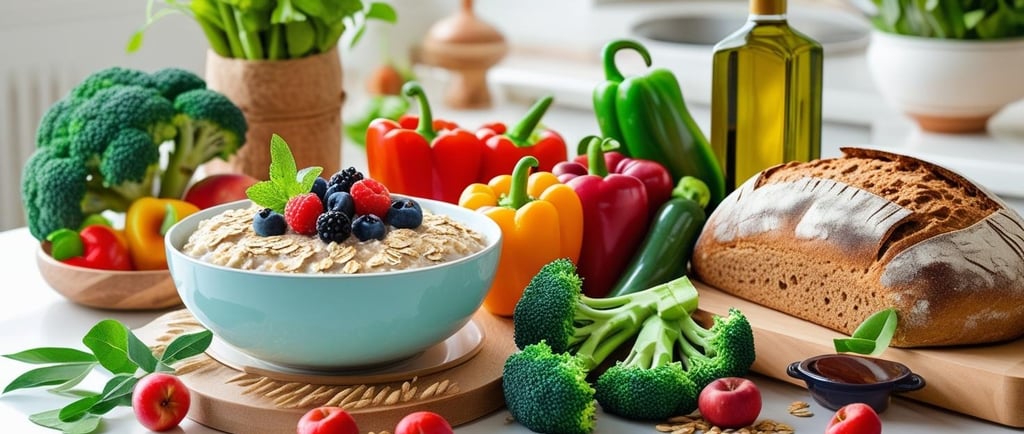How to Make Healthy Food Choices That Actually Support Your Heart & Energy
7/27/20252 min read


Smart Food Choices for a Healthier Life
Eating well doesn't mean giving up the foods you love—it means learning how to choose ingredients that fuel your body and protect your long-term health.
Fruits, vegetables, whole grains, legumes, and seeds are naturally low in saturated fat and cholesterol. They’re packed with fiber, vitamins, and complex carbohydrates that help your heart, boost your digestion, and keep you full longer.
Here are some tips to help you make more informed and healthy food choices, without the confusion.
1. Be Mindful of Plant-Based Fats
Even healthy plant-based foods can be high in fat or calories.
🥥 Coconut is rich in saturated fat and should be eaten in moderation.
🫒 Olives and olive oil contain heart-healthy monounsaturated fats but are still calorie-dense.
✅ The takeaway: Use healthy fats like olives and nuts sparingly—just a drizzle or small handful goes a long way.
2. Watch for Hidden Fats in Cooked Grains
Some breads, pastas, or processed grain products include added fats or cholesterol—like egg yolks or butter during cooking or processing.
📋 Read labels on breads and pasta to avoid extra saturated fat that could sneak into your meal.
3. Limit Added Sodium in Canned Veggies
Canned and processed vegetables are convenient—but often high in sodium.
Too much salt can increase blood pressure and put stress on your heart.
👀 Look for labels that say “low-sodium” or “no salt added”—or better yet, choose fresh or frozen vegetables when possible.
4. Balance Your Intake of Nuts and Seeds
Nuts and seeds are nutrient powerhouses, full of protein, fiber, and healthy fats. But not all fats are equal:
🥜 Macadamia nuts are high in saturated fat
🌻 Sunflower seeds are rich in polyunsaturated fats
🧠 Smart tip: Enjoy nuts and seeds in small portions—about a handful per day is plenty.
5. Load Up on Soluble Fiber Foods
Soluble fiber slows digestion, helps balance blood sugar, and lowers cholesterol.
Great sources include:
Oatmeal and oat bran
Beans, peas, lentils
Barley and rice bran
Apples and other fruits with pulp
🥣 Start your day with oatmeal or toss beans into your salad for an easy fiber boost.
6. Read Nutrition Labels to Make Smarter Choices
Before buying, take a minute to scan the nutrition label.
Check for:
Saturated fat and cholesterol content
Added sugars or sodium
Fiber amount per serving
📊 The more you read, the more confident you’ll become in picking what’s right for your body.
Final Thoughts: Choose What Supports You
Healthy eating isn’t about being perfect—it’s about being aware. By understanding what’s really in your food, you can make better choices that protect your heart, energize your day, and nourish your future.
Try swapping just one packaged food this week with a fresh or fiber-rich option.
Happy Healthy and Balanced
Empowering you to live a happy, healthy, and balanced life.
admin@happyhealthyandbalanced.com
© 2025. All rights reserved.
Contact
